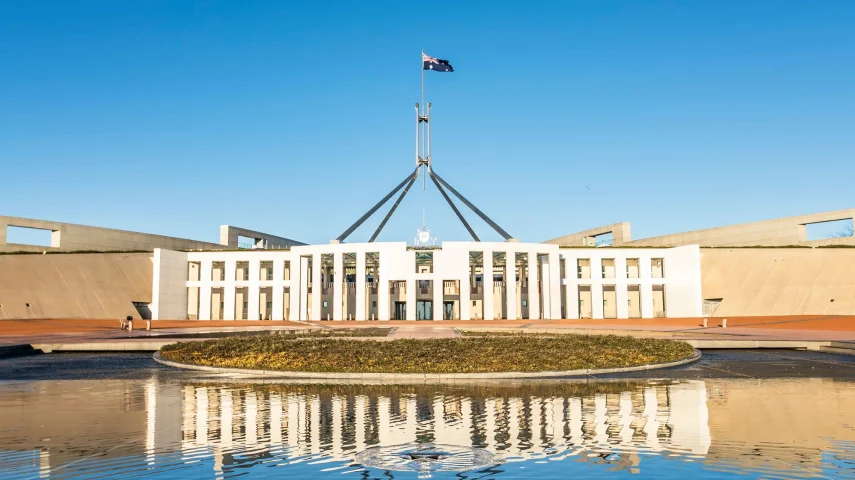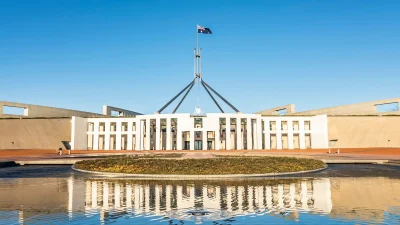Treasury launches consultation on QAR draft regulation



The government has commenced a consultation on draft regulations to support the implementation of the first tranche of Quality of Advice Review reforms.
On 11 June, Treasury announced the commencement of the consultation process on the Treasury Laws Amendment (Delivering Better Financial Outcomes) Regulations 2024 (draft regulations).
These are consequential amendments to support the implementation of the Treasury Laws Amendment (Delivering Better Financial Outcomes and Other Measures) Bill 2024, and the first part of the government’s response to the Quality of Advice Review.
The paper comes ahead of a public hearing on the legislation which is scheduled to be held on Thursday, 13 June.
The draft regulations:
- support written information or documentation requirements for the purposes of section 99FA of the Superannuation Industry (Supervision) Act 1993 (SIS Act) to continue to be met electronically.
- remove requirements related to Fee Disclosure Statements, update recordkeeping obligations for new consent requirements and remove references to civil penalties which are removed in the Amending Bill.
- align requirements for Financial Services Guides and Website Disclosure Information and make other consequential amendments.
- streamline the regulations for conflicted remuneration in line with the changes to the Amending Bill.
- ensure the informed consent requirements apply for benefits given in relation to a general insurance product where personal advice is provided.
All interested parties have until 8 July to provide their feedback.
The government introduced the first tranche of the DBFO bill to Parliament in March. While a majority of the bill is uncontroversial and attempts to scrap some of the red tape that has overwhelmed the profession in recent years, advisers have opposed suggested amendments to section 99FA of the SIS Act, which appear to dictate that superannuation trustees must review clients’ statements of advice (SOAs) before they can satisfy members’ requests for payment of advice.
The bill has been green-lit by the House of Representatives and is now under consideration by the Senate economics legislation committee.
Both the Financial Advice Association Australia (FAAA) and the Financial Services Council (FSC) have called for explicit changes to the bill’s provisions to ensure the regulatory burden on trustees and advisers does not increase.
The Minister for Financial Services, Stephen Jones, clarified that it was not his intention to create additional checks. Instead, he insisted that the policy intent was simply to continue current practices – a risk-based sampling approach.
Speaking at ifa’s Adviser Innovation Summit last week, Sarah Abood, CEO of the FAAA, shared that the government has amended the bill’s explanatory memorandum (EM) to clarify that it does not require a rigorous review of each SOA. However, she noted that maintaining the bill in its current form means the issue persists.
The concern is that if the wording remains unchanged, some trustees may interpret it as requiring more rigorous checks, thereby adding unnecessary red tape to the process.
“Our strong preference is that these changes be made in the law itself because it’s challenging practically to always have to read the EM,” Abood said.
“We think it would be far clearer and more explicit to make that change in the legislation itself and we continue to argue for it.”
Recommended for you
Net cash flow on AMP’s platforms saw a substantial jump in the last quarter to $740 million, while its new digital advice offering boosted flows to superannuation and investment.
Insignia Financial has provided an update on the status of its private equity bidders as an initial six-week due diligence period comes to an end.
A judge has detailed how individuals lent as much as $1.1 million each to former financial adviser Anthony Del Vecchio, only learning when they contacted his employer that nothing had ever been invested.
Having rejected the possibility of an IPO, Mason Stevens’ CEO details why the wealth platform went down the PE route and how it intends to accelerate its growth ambitions in financial advice.















For completeness the Joint Associations Working Group (JAWG), a coalition of 12 industry and professional bodies
representing financial advisers, stockbrokers, accountants, superannuation trustees and investors, of which the FSC, FAAA and Licensees are members of are seeking these changes, with the goal of making the law clearer and advice more affordable and accessible for consumers. JAWG Members include:
Boutique Financial Planning Principals Association Inc. (BFP)
CFA Societies Australia
Chartered Accountants Australia and New Zealand (CA ANZ)
CPA Australia
Financial Advice Association of Australia (FAAA)
Financial Services Council (FSC)
Financial Services Institute of Australasia (FINSIA)
Stockbrokers and Investment Advisers Association (SIAA)
Institute of Public Accountants (IPA)
Licensee Leadership Forum (LLF)
Self Managed Super Fund Association (SMSFA)
The Advisers Association Ltd (TAA)